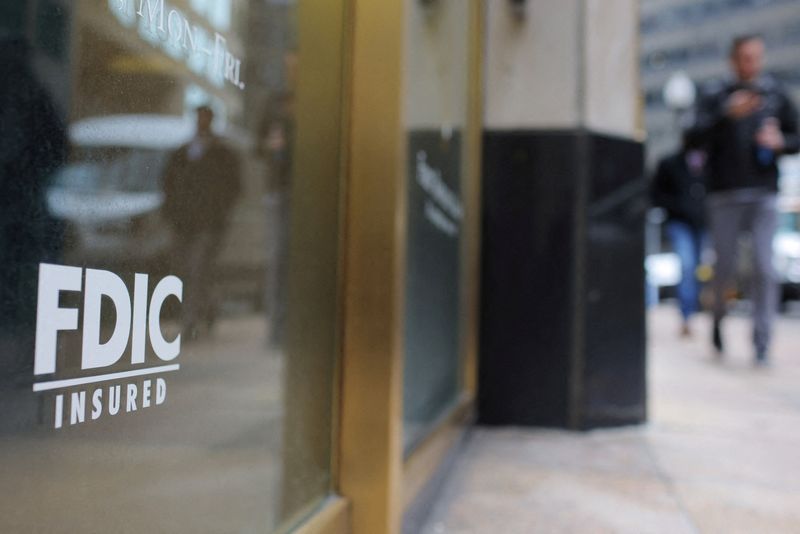(Reuters) - The U.S. Federal Deposit Insurance Corporation (FDIC) will take the plight of community banks into account when charging financial institutions a "special assessment fee" to cover recent losses incurred over the U.S. banking crisis, the FDIC's head told lawmakers in a hearing on Wednesday.
The special assessment fee, which is required by law, will help the FDIC cover losses to its deposit insurance fund from backstopping depositors at Silicon Valley Bank, which collapsed earlier this month.
"The FDIC has authority to consider under the law who benefits from the assistance provided and we'll take that into account with particular attention and sensitivity to the impact on community banks," Martin Gruenberg, head of the FDIC, said in the hearing.
Some banking groups have urged the Biden administration and the FDIC to temporarily guarantee all U.S. bank deposits, a move they say will help quell a crisis of confidence after the failure of Silicon Valley Bank and Signature Bank (OTC:SBNY).
Representatives from both political parties in the U.S. pressed Michael Barr, Fed Vice Chair for Supervision, FDIC's Gruenberg and Treasury undersecretary for domestic finance Nellie Liang on why regulators did not act more forcefully, given Fed supervisors had been raising issues with the bank for months.

The fall of SVB and Signature, the second- and third-largest bank failures in U.S. history, sent investors scurrying to safe havens like bonds while depositors moved funds to bigger institutions and money market funds.
Depositors tried to pull more than $42 billion in a single day at SVB in early March, surprising regulators and kicking off bank runs across other regional banks.